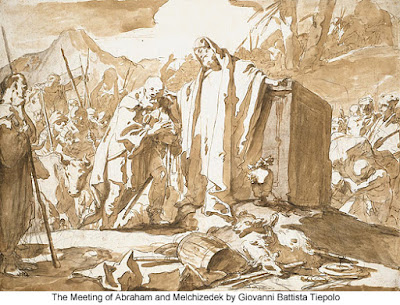 |
| Image: pixabay |
TO CHEW ON: “‘Then the owner of the vineyard said,”What shall I do? I will send my beloved son…”’” Luke 20:13
In the parable of the Wicked Vinedressers (Luke 20:9-16)—which the chief priests and scribes recognized as a parable against them—Jesus called the son that the king finally sent, in the king's words “my beloved son.”
If we are at all familiar with the Bible, flags will go up at that expression. We’ve heard it before.
- The prediction that God would send a Son occurs as early as Psalm 2:7:
“I will declare the decree:
The Lord has said to Me,
‘You are My Son,
Today I have begotten You.
The Messiah that Isaiah predicted was described in offspring terms:
“And now the Lord says,
Who formed Me from the womb to be His Servant,
To bring Jacob back to Him,
So that Israel is gathered to Him- Isaiah 49:5.
"Yet it pleased the Lord to bruise Him;
He has put Him to grief.
When You make His soul an offering for sin,
He shall see His seed, He shall prolong His days,
And the pleasure of the Lord shall prosper in His hand - Isaiah 53:10.
- When Jesus arrived, God the Father said it publicly at His baptism:
“And suddenly a voice came from heaven saying, ‘This is My beloved Son, in whom I am well pleased’” - Matthew 3:17 (also Mark 1:11; Luke 3:22).
He said it again on the Mount of Transfiguration:
“‘This is My beloved Son. Hear Him’” - Luke 9:35 (and Peter recalled the experience in 2 Peter 1:17-18).
- In confronting the Jewish religious leaders, who were so offended by His claims they sought to kill Him (as in our reading as well) Jesus said it plainly to them:
“‘For the Father loves the Son and shows Him all things that He Himself does’” - John 5:20.
As we approach the Advent season when we focus on the expectation and fulfillment of God sending His Son, I am particularly moved by the adjective “beloved.” This was no robotic, mechanical gift from cold, distant God but a tearing apart of His very self as He entrusted His Beloved Son to Earth’s murderous gardeners; entrusted Him to what He knew would happen, indeed what had to happen in order to restore sinful man back to relationship with Him.
It's a gift that makes it possible for us to say with Paul:
“He has delivered us from the power of darkness and conveyed us into the kingdom of the Son of His love” - Colossians 1:13.
Hallelujah!
PRAYER: Dear Father, as a parent I understand how beloved a child is. That You would send Your Son Jesus to be treated as He was and sacrificed for me is hard to comprehend, but wonderful. Thank You! Amen.
*********
Unless otherwise noted all Scripture quotations are taken from the New King James Version®. Copyright © 1982 by Thomas Nelson, Inc. Used by permission. All rights reserved.


